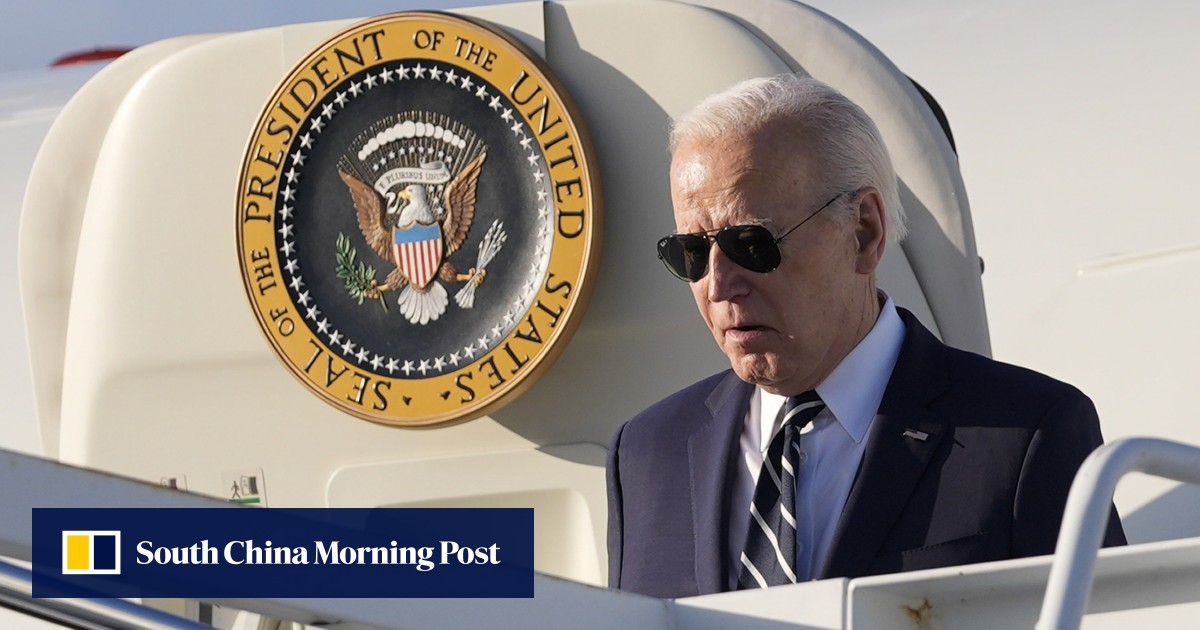The two foes have for years been engaged in a shadow war marked by incidents like the Damascus strike. But Sunday’s assault, which set off air raid sirens across Israel, was the first time Iran has launched a direct military assault on Israel, despite decades of enmity dating back to the country’s 1979 Islamic Revolution.
Israel has over the years established – often with the help of the United States – a multilayered air-defence network that includes systems capable of intercepting a variety of threats including long-range missiles, cruise missiles, drones and short-range rockets.
That system, along with collaboration with the US and other forces, helped thwart what could have been a far more devastating assault at a time when Israel is already bogged down in its war against Hamas in Gaza and engaged in low-level fighting on its northern border with Lebanon’s Hezbollah militia. Both Hamas and Hezbollah are backed by Iran.
Israeli and US officials lauded the response to the aerial assault.
“Iran launched more than 300 threats and 99 per cent were intercepted,” said Rear Admiral Daniel Hagari, the Israeli military spokesman. “That is a success.” Asked if Israel would respond, Hagari said the country would do what was needed to protect its citizens.
Hagari said that none of the drones reached Israel, 25 cruise missiles were shot down by the Israeli air force and none entered Israel’s airspace. He said most of the ballistic missiles were also intercepted.
Israeli Prime Minister Benjamin Netanyahu posted a short message on X, formerly Twitter: “We intercepted. We blocked. Together, we will win.”
Defence Minister Yoav Gallant also celebrated the results, thanking the US and other countries for their help, but warned that the incident was ongoing.
“This campaign is not over yet. We need to remain vigilant … and to prepare for any scenario,” he said in a video statement. “At the same time, we blocked the first wave [of attacks], and we did it with great success.”
Hagari said minor damage was caused to an Israeli airbase, but he said it was still functioning. Rescuers said a 7-year-old girl was seriously wounded in southern Israel, apparently in a missile strike, though they said police were still investigating the circumstances of her injuries.
‘God’s victory is near’: Iranians celebrate in streets following attack on Israel
‘God’s victory is near’: Iranians celebrate in streets following attack on Israel
Israel announced it reopened its airspace, loosening one restriction it had imposed ahead of the strike, although schools remained closed around the country. Neighbouring Jordan also reopened its airspace.
Israel may be particularly proud of the success of its defence because it stands in sharp contrast to the failures it endured during Hamas’ attack on October 7. Facing a far less powerful enemy in Hamas, Israel’s border defences collapsed and the military took days to repel the marauding militants – an embarrassing defeat for the Middle East’s strongest and best-equipped army.
While thwarting the Iranian onslaught could help restore Israel’s image, what it does next will be closely watched both in the region and in Western capitals.
In Washington, Biden said US forces helped Israel down “nearly all” the drones and missiles and pledged to convene allies to develop a unified response.
Biden, who had cut short a weekend stay at his Delaware beach house to meet with his national security team at the White House on Saturday afternoon, spoke with Netanyahu later in the day.
“I told him that Israel showed a remarkable capacity to defend against and defeat even unprecedented attacks – sending a clear message to its foes that they cannot effectively threaten the security of Israel,” Biden said.
Iran seizes Israel-linked cargo ship with 25 crew: Iranian media
Iran seizes Israel-linked cargo ship with 25 crew: Iranian media
In a statement Sunday, Secretary of State Antony Blinken said the US does “not seek escalation,” and would hold talks with its allies in the coming days.
The US, along with its allies, has sent direct messages to Tehran to warn against further escalating the conflict.
In a statement carried late Saturday by Iran’s state-run IRNA news agency, the country’s paramilitary Revolutionary Guard acknowledged launching “dozens of drones and missiles towards the occupied territories and positions of the Zionist regime.”
In a later statement, the Revolutionary Guard issued a direct warning to the US: “The terrorist US government is warned any support or participation in harming Iran’s interests will be followed by decisive and regretting response by Iran’s armed forces,” the statement said.
Iran had vowed revenge since the April 1 air strike in Syria, for which Tehran held Israel responsible. Israel hasn’t publicly commented on it.
Israel and Iran have been on a collision course throughout Israel’s six-month war against Hamas militants in Gaza, triggered by the October 7 attack on Israel. On that day, militants from Hamas and Islamic Jihad, also backed by Iran, killed 1,200 people in Israel and kidnapped 250 others.
An Israeli offensive in Gaza has caused widespread devastation and killed over 33,000 people, according to local health officials.
Negotiations under way, meant to bring about a ceasefire in exchange for the release of the hostages, appeared to hit a setback Sunday. Netanyahu’s office said that Hamas rejected the latest proposal for a deal, which had been presented to Hamas a week ago by mediators Qatar, Egypt and the United States.
There was no immediate comment from Hamas on the claim. On Saturday, the militant group said it had submitted its response to mediators.
Hamas welcomed Iran’s attack, saying it was “a natural right and a deserved response” to the strike in Syria, and urged the Iran-backed groups in the region to continue to support Hamas in the war against Israel.
Almost immediately after the war erupted, Hezbollah began attacking Israel’s northern border. The two sides have been involved in daily exchanges of fire, while Iranian-backed groups in Iraq, Syria and Yemen have launched rockets and missiles toward Israel.
